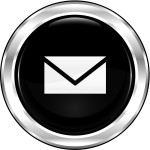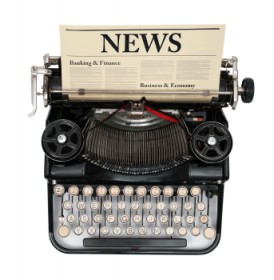Top tips from Mesmo Consultancy (and Associates) on how to save time and improve business and personal performance by ‘Taking Control of your Inbox’ and using proper business email etiquette.
Did I miss not having any email yesterday? What was the effect on my work-life balance and business? Would there be chronic email overload the next day?
Normally I check my email first thing in the morning with a coffee in hand from one or other of the available devices (ipad or Mac). However Wednesday was No Email Day. Initially I felt at a loss. That day, I was hosting a guest at an important lunch event meeting and second there was some urgent work to finish. Not checking my inbox gave me back an hour to be properly prepared.
During the day I did cheat a couple of times and ask our Office Manager to check my inbox. She dealt with the really urgent messages which left me to focus on and complete the pressing client work. Normally I check my emails before switching off as many of my clients are on different time zones. However no one balked at a reply 24 hours later, No contracts were lost, no clients deserted me. The plus, time to read a book and get an early night.
For me even as an email management guru the key lessons were:

Mesmo Consultancy’s recent studies show that email is here to stay for at least another five years. The key to using email effectively is to take control and rule the inbox rather than let it distract and rule your day. That may mean some email management training in the new year.
Tags: email management training, email overload, Mesmo Consultancy, No Email Day
Feeling under the cosh with email overload and trying to reach inbox zero? 12-12-12 is the date for the ‘Concert for New York’ to raise money for those still effected by the aftermath of hurricane Sandy. Having been to NYC recently and experienced some of the devastation, worrying about our email seems quite trivial set against those who lost everything when Sandy hit.

Nonetheless, for those who are struggling to manage their email more efficiently help is at hand as 12-12-12 is also No Email Day. How can that possible help you ponder. Surely people will just save all their emails for the next day. That would be to miss this glorious unique opportunity to step out the inbox and review just what you are achieving when you send an email.
Email is only one of a burgeoning range of media. Yet we default to email whether through laziness, habit, addiction or lack of knowledge and skills about how to use the alternatives.
On No Email Day, before you hit send ask yourself:
The other great ways to use No Email Day are first, clear out of your inbox all the old and irrelevant emails which are of no value whatsoever to either you or your business. This might also highlight the second positive action, get some email management training to help you be more efficient.
No one is suggesting we abandon email indeed far from it. However, just once in a while it pays to ‘dry-out’ and stop taking the drug. Click here to check your current level of email addiction and how you can lower it and be more efficient.
Think about those caught up in Sandy and who lost power never mind email. They and their business survived with no visible impact to the bottom line.
One No Email day – with no new mail alerts here is an opportunity to develop better more creative ways to communicate whilst at the same time reducing the level of email overload.
Tags: 12-12-12, email management training, email overload, No Email Day, Sandy
As the last typewriter rolls off the production line I am filled with sadness. I loved the clatter of the keys and the whiz of the carriage as you pushed it across. Here is a wonderful video for those who yearn after these sounds which to me equalled creativity and thinking. There was little scope for making errors unless you wanted either to type the whole page again or cover yourself in Snowpake corrector fluid. You had to plan what was to be typed before hitting the keys.
I blame the demise of the typewriter on the insidious rise in Cc’d email and hence email overload. In the era of the typewriter you could only make a limited number of carbon copies. Typing a memo therefore did not give you the option to flood  everyone’s in-tray (inbox) with trivial memos and replies and counter replies.
everyone’s in-tray (inbox) with trivial memos and replies and counter replies.
The effort of typing a reply also meant you used your time carefully and again cosidered what was to be said and how it should be laid out. You also thought hard about the length of the memo (unless you could touch type). The death of the typewriter may therefore also be partly to blame for the often appalling level of grammar and English we now witness in electronic communications, not to mention bad email etiquette.
Then there is RSI. Did anyone ever complain of it with a typewriter? No. Did you need to be connected to use one? No. Did you need to upgrade every year or so? No. Your portable typewriter was like a faithful companion, always there ready to go and help you produce that new column, manuscript, letter etc.
There have been several obituaries to the typewriter amongst my favorites of which are Oh Brother, where are thou? by Will Self in The Times and Typewriter’s block in the Financial Times.
What do you miss about the typewriter?
Tags: cc'd email, email etiquette, email overload, RSI, typewriter
How the shape of the earth dictates email’s longevity
Nathan Zeldes, Nov. 4, 2012
Email was invented in 1971, with a message crossing from one end of a room to the other via ARPANET, and has gone on to become a major presence in the life of every knowledge worker on the planet. We devote to it 20 hours a week, complaining endlessly about the overload and the stress. And yet – despite the availability of many more modern tools like IM and various Social Media, email is still here, based on the same paradigm it had 41 years ago. In fact, when Google introduced Wave, that exuberantly media-rich social messaging platform, they said it’s time to reinvent email to match the 21st century; but Wave has since followed the dodo and email is still here.
I’d like to suggest one reason for this seeming paradox – an attribute of email that is mostly absent in the tools seeking to replace it, and which represents a deep advantage for many users.
This relates to the fact that the earth is still (with all due respect to Thomas Friedman) round. In a globalized economy, this means that some of the people you must communicate with will be asleep when you have something to tell them or ask of them. And there’s more – cultural diversity ensures that holidays and weekends vary widely, so much so that Prof. Erran Carmel of American University has found that only about a quarter of the workdays in a year are common to all the countries where a large corporation may run its business. In this messy reality, email shines for its primary attribute: it is asynchronous. It is a messaging platform where messages arrive, accumulate, and persist until read. No matter whether your recipient is asleep, celebrating a local holiday, or on vacation, they’ll get your message when they return to their work.
I remember this aspect well from the eighties, when I was first exposed to email. Working in Israel for an American company, email allowed me to correspond with my US coworkers with a “guaranteed next day response”. The guarantee has since evaporated, alas, due to email overload, but the basic concept has remained: you send the mail out in your daytime, when the other fellow’s asleep, and you get a reply when you’re awake some other day. For global distributed teams, email solves one major issue caused by our spherical home world – it empowers members to work together without staying awake at all hours. Like the Fax machine, its extreme usefulness is keeping it alive.
True, Gen Y and Gen Z folks have different habits than their elders, and they bring with them from school a preference for Facebook and SMS as primary communication channels; but then, their life as students requires no participation in hectic global teams. I suspect that once they enter the enterprise they will retain Facebook as a social tool and even use it to good advantage for some work activity, but will stick to email for most of their globally oriented team interaction.
The challenge for us who combat Information Overload is therefore to help organizations and individuals use introduce some email best practice strategies to allow us to manage email in better, more effective, less stressing ways; because – unless someone finally invents a planet-flattener of some sort – email rules, it isn’t going away anytime soon!
Nathan Zeldes, 12 November 2012
Tags: email best practice, email etiquette rules, email overload, email response times. Nathan Zeldes, information overload

Email bullying?
In the USA, October is national prevent bullying month. We do not appear to have anything similar in the UK which is a shame especially as there have been a few cases of young people committing suicide through feeling bullied on Facebook etc.
Email too can easily be used to bully people. For example leaving insufficient time to reply, constantly sending email reminders and demands. Sending rude, arrogant and abrasive emails can be stressful too for the recipient. Attaching read receipt and reminder flags might also be deemed bully tactics. Such harassment is a drain on productivity as found previously. Perhaps the most serious form of email bullying is expecting people to reply too quickly and often outside acceptable working hours. Moreover, email bullying adds to the email overload and hence stress levels.
Any form of bullying is to be deplored and is unacceptable. Social technologies and email have just made it easier to do in a hidden and often covert manner. Deleting and/or ignoring such emails is not an option.
VW recently stopped sending email to workers Blackberrys thirty minutes after their shift ended. That is taking a sledge hammer to crack a nut.
At Mesmo Consultancy we have found a more informed a sustainable solution is to implement a proper email management code of conduct and email best practice charter. It should contain both what is acceptable email behaviour and the procedure if you are on the receiving end of email bullying.
Have you ever been bullied by email? Does your organisation have such an email management code of conduct?
Tags: corporate email etiquette, email best practice, email bullying, email management, email response times, email stress, Mesmo Consultancy